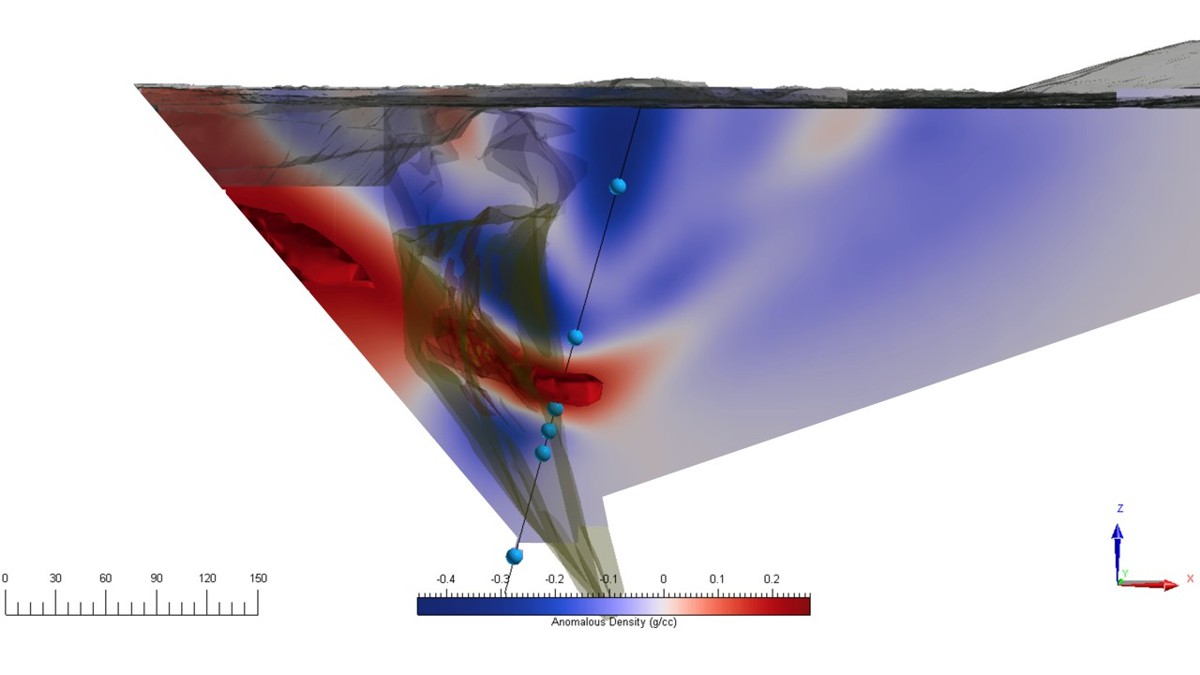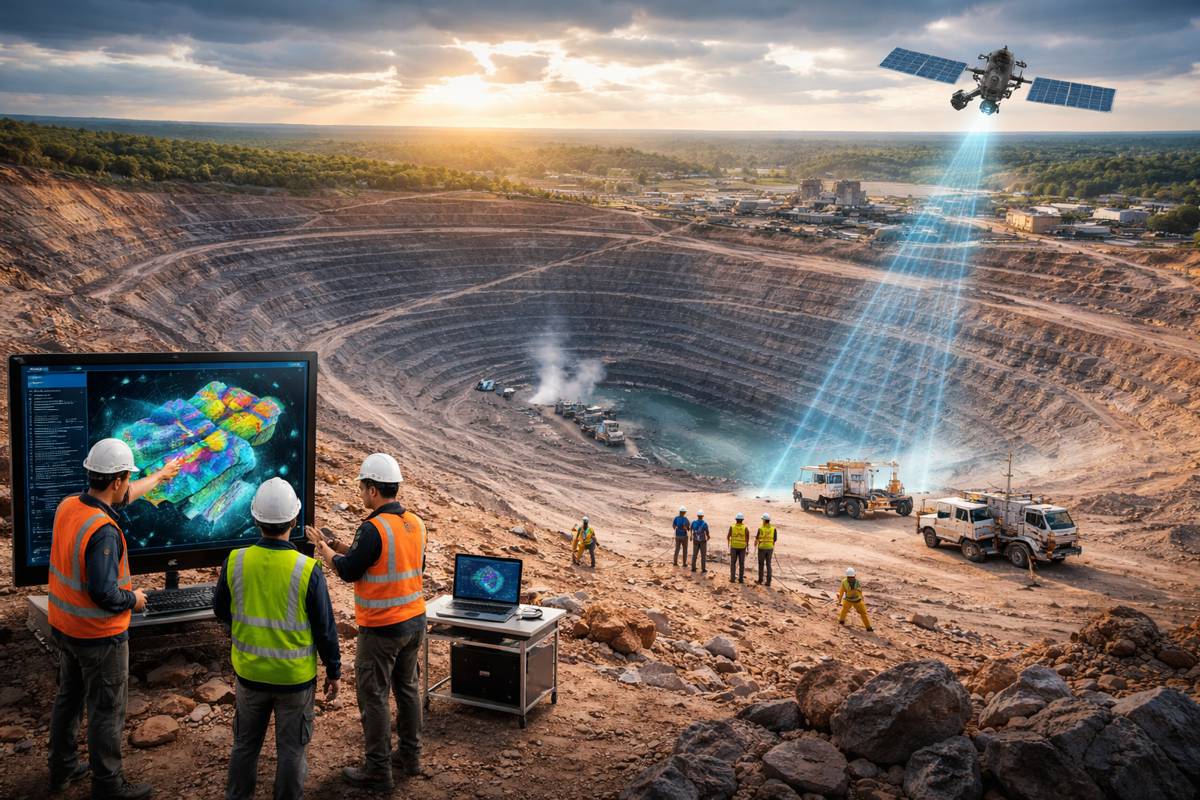Borehole Muon Tomography produce 3D models of Underground Targets
Canadian subsurface intelligence company Ideon Technologies has delivered successful imaging results from the world’s first borehole muon tomography project for mineral exploration, in cooperation with Orano Group – one of the top global uranium producers. The results demonstrate the effectiveness of the technique to image alteration surrounding a high-grade compact, uranium deposit.
Ideon is a world pioneer in cosmic-ray muon tomography, providing x-ray-like imaging of density anomalies down to 1 km beneath the Earth’s surface, using the energy from supernova explosions in space. The Ideon subsurface intelligence platform integrates proprietary muon detectors, imaging systems, inversion technologies, and artificial intelligence to produce high-resolution 3D models of underground targets.
Orano’s imaging target at McClean Lake, Saskatchewan is a high-grade, compact uranium deposit located at 200 metres depth. Six borehole muon detectors were deployed down a single drill hole in a connected sequence, delivering progressive imaging results throughout the survey. Outcomes matched the existing geological model, defining structural trends and mapping broad alterations surrounding uranium mineralization. Minor variations in density within the alteration zone correlated spatially with the known mineralization.
Uranium is one of Canada’s 31 critical minerals deemed to be either essential to the country’s economic security; required for the national transition to a low-carbon economy; or a sustainable source of highly strategic critical minerals for Canadian partners and allies.
“We are impressed with the initial outcome of this project; it could have the potential to transform the very nature of how we explore for uranium,” says Hervé Toubon, Research & Development and Innovation Director at Orano Mining. “The subsurface intelligence we gain with muon tomography can help guide our Exploration team efforts in defining the limits of alteration zones around our targets, potentially reducing our drilling efforts and our environmental footprint.”
Orano and Ideon have been collaborating since 2016, when Ideon deployed its first-generation, large-format detectors at the McArthur River Mine in Saskatchewan, successfully imaging a high-grade uranium deposit under 600 metres of sandstone.
“Orano has demonstrated trust in our capabilities for many years, leading the way in adopting our innovative technology solution,” says Gary Agnew, CEO & Co-Founder at Ideon. “Not only did Orano directly support the development of our miniaturized borehole detector, but also partnered with us on multiple scientific field trials to ensure full commercial readiness of this new geophysical technique. We are proud to deliver excellent results to such a supportive partner and look forward to our next deployments together.”
Ideon offers the only straight-line subsurface imaging technology available today, delivering the highest available resolution along with precise anomaly location information. Muon tomography uses a passive and free energy source (cosmic rays from space), offers the ability to image in noisy or conductive environments, and captures data continuously – improving imaging results over time.
This was a EUREKA-approved research and development project, which received advisory services and funding support from the National Research Council of Canada Industrial Research Assistance Program (NRC IRAP).





























